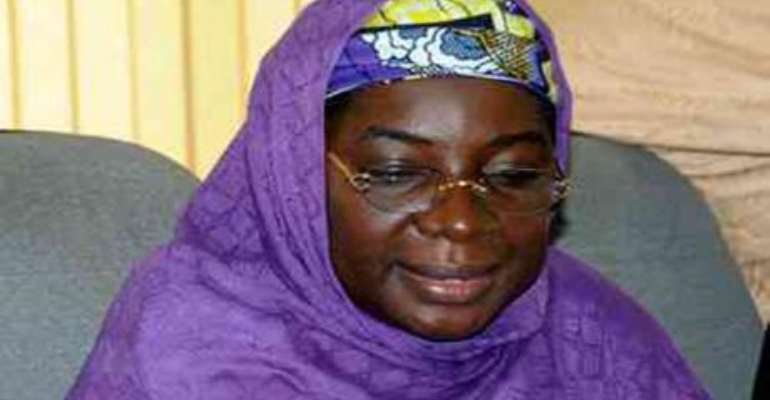FEDERAL GOVERNMENT AND THE CHALLENGE OF NIGERIA’S VARSITY SYSTEM

The challenges in Nigeria's university system can never be swept under the carpet as they keep re-occurring, even when efforts have been made to tackle some of its numerous problems. In this report, Kuni Tyessi takes a look at the journey so far.
The minister of education, Prof. Ruqayyatu Ahmed Rufa'i has noted severally that for Nigeria to achieve its vision of becoming one of the leading twenty economies in the world by the year 2020, the nation must be able to harness the potentials inherent and also not toy with its education.
It would be pertinent to note that Universities are established for the generation of new knowledge, which is based on research, to support economic growth and competitiveness and sub-Saharan Africa cannot afford to continue to be spoon-fed by other nations who have made giant strides through deliberate investment in the education of the citizenry.
An Interesting example of the minister's battle to restore sanity and probity in the nation's tertiary institutions was the handling of a potentially very messy affair involving the Federal University of Petroleum Resources University Effurun, Delta State. This is an institution that has simply refused to grow since its establishment in 2006 as a specialized university for oil and gas.
The situation was compounded by the frosty relations between the management of the university and the last governing council on the one part and the overbearing, selfish interference by a former Minister of Education from the area who made his unqualified and inexperienced wife deputy registrar of the university and was bent on hoisting her as the substantive registrar of the university.
In furtherance of this goal, this former minister was illegally attending meetings of the council in his capacity as a Minister of State in the sector. Development projects where not executed even when financial provisions had been made for them.
The visitation panel was directed to recall any staff on leave. This may be in direct reference to the former Minister's wife who quickly took a leave on anticipation of the Special Visitation Panel inquest into the activities of the University. The committee submitted its report on Monday, 5th October, 2012 and made far reaching recommendations. We anxiously await further development s on the outcome of the report.
A very fundamental development in the education sector was the inauguration of the Needs Assessments Committee for public Universities in Nigeria. This Committee is a direct fallout of the historic roles played by the Secretary to the Government of the Federation Sen. Anyim Pius Anyim who led the Federal Government team in resolving the outstanding issues in the 2009 FGN/ASUU agreement which led to the suspension of the two-month old nationwide strike by ASUU.
Among other issues, the Federal Government gave commitments to the unions to increase funding for Nigerian universities from statutory and non-statutory sources. However, government wants to know what use the money is going to be put to, hence the necessity for a needs assessment for all public universities in Nigeria.
It is sad that in many Universities, there is neither accurate nominal roll of staff and students nor a reliable inventory of learning resources or even an accurate condition survey of physical infrastructure. The nation's high level manpower is trained on obsolete equipment and in most cases, in disciplines not directly central to our national development and international competitiveness.
The minister inaugurated the Committee which includes members from the National Assembly, the executive arm of government and the unions. This is the first time in a long time that a government committee is having such representations considering the principle of separation of powers.
This committee is chaired by the Executive Secretary of the Tertiary Education Trust Fund (TETFund), Prof. Mahmood, perhaps as a result of his role in the last four years in providing renewed invigoration, focus and best practices in the funding of tertiary institutions in Nigeria via the activities of that agency which has received both national and international acclaim.
The Committee is required to make actionable recommendations that will allow for the optimum application of the additional resources government has promised for education in a nation used to spending without plan.
This appears a novelty. The minister is determined that resources must be deployed to address priorities of Universities. This move will definitely not make her popular with the beneficiaries of the old order.
